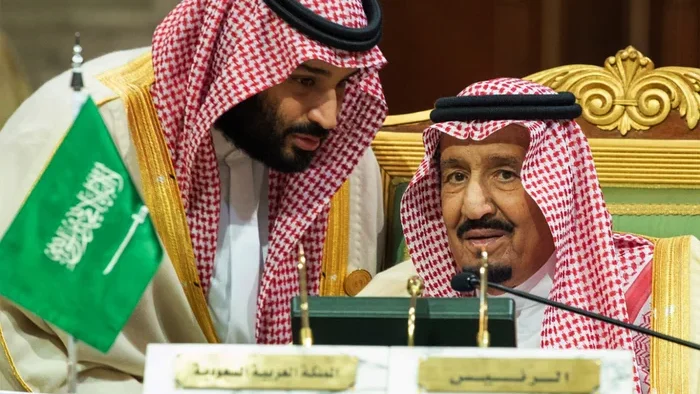Saudi Arabia’s Strategic Image Overhaul: Balancing Reforms and Diplomacy
In recent months, Saudi Arabia has embarked on a series of strategic initiatives aimed at reshaping its international image and asserting its influence on the global stage. The country is making significant moves to change how it is perceived by the international community, focusing on two key areas: the release of political prisoners and high-profile diplomatic engagements. These efforts are widely seen as part of Crown Prince Mohammed bin Salman’s broader vision to modernize the kingdom while maintaining its geopolitical strength.
Release of Political Prisoners
A major part of Saudi Arabia’s image transformation is the quiet release of numerous political detainees. In recent years, the kingdom has faced heavy criticism over its human rights record, particularly concerning the imprisonment of activists, journalists, and individuals who voiced dissenting opinions. Now, in what appears to be an effort to address these concerns, the Saudi government has begun releasing some of these individuals.
One of the most notable cases is that of Salma al-Shehab, a PhD student from Leeds University who was sentenced to 34 years in prison for advocating women’s rights on social media. Her release, along with several others, signals a potential shift in Saudi Arabia’s approach to political activism. However, many observers remain cautious, as these individuals are often subjected to travel bans and other restrictions even after their release.
While human rights organizations have welcomed these developments, they argue that the releases alone are not enough. Many of the freed individuals are still unable to leave the country or speak openly about their experiences. Activists continue to call on the Saudi government to remove these restrictions and release all political prisoners who were detained for non-violent activism or expressing their opinions.
Diplomatic Engagements and Power Plays
At the same time, Saudi Arabia is actively strengthening its position on the global stage through strategic diplomatic efforts. The kingdom recently hosted a summit involving Russian and U.S. officials to discuss the ongoing conflict in Ukraine. This move not only reinforced Saudi Arabia’s role as a key mediator in global politics but also demonstrated its ability to maintain relationships with major world powers despite their competing interests.
Beyond diplomacy, Saudi Arabia is also focusing on strengthening its economic partnerships, particularly with the United States. At a recent investment conference in Miami, prominent business leaders and political figures, including former U.S. President Donald Trump, gathered to discuss opportunities for increased collaboration. The event highlighted Saudi Arabia’s commitment to economic development and its willingness to attract foreign investment by presenting itself as a stable and lucrative business environment.
These efforts align with Saudi Arabia’s broader Vision 2030 initiative, which seeks to reduce the kingdom’s reliance on oil and diversify its economy. By engaging in high-profile diplomatic and economic events, the Saudi leadership is sending a clear message that the country is evolving and wants to play a more significant role in shaping global affairs.
Balancing Reforms with Traditional Values
Despite these progressive steps, Saudi Arabia faces significant challenges in balancing modernization with its deeply rooted traditions and political structures. The kingdom remains an absolute monarchy with strict controls over political expression, and while recent moves suggest a willingness to embrace some level of change, the government continues to impose limits on freedoms.
Crown Prince Mohammed bin Salman has positioned himself as a reformist leader, introducing policies that allow women to drive, expand entertainment options, and promote tourism. However, critics argue that these reforms are selective and do not extend to political freedoms or broader human rights issues. Many activists and dissidents remain in prison, and independent journalism is heavily restricted.
International observers are closely watching Saudi Arabia’s next steps. Some believe that the recent developments are primarily aimed at improving its image rather than representing genuine systemic change. Others argue that even if the motivations are strategic, these actions could eventually lead to long-term reforms if the kingdom continues on this path.
Conclusion
Saudi Arabia’s recent efforts to reshape its international image are a combination of strategic prisoner releases, diplomatic engagement, and economic expansion. While the release of political detainees and active participation in global affairs are positive signs, they do not necessarily indicate a complete transformation. Many of those freed remain under strict limitations, and the broader human rights situation in the country remains a concern.
The kingdom’s long-term reputation will depend on whether these changes lead to meaningful and lasting reforms. While its diplomatic and economic strategies are strengthening its global influence, the true test will be whether Saudi Arabia embraces deeper political and social freedoms that align with international human rights standards. Until then, the world will continue to watch closely, assessing whether these moves represent genuine progress or are primarily designed to enhance the country’s global standing.
Do follow gulf magazine on Instagram
for more information click here


